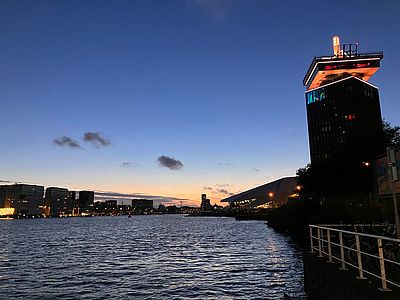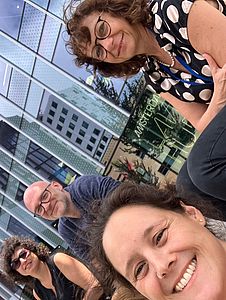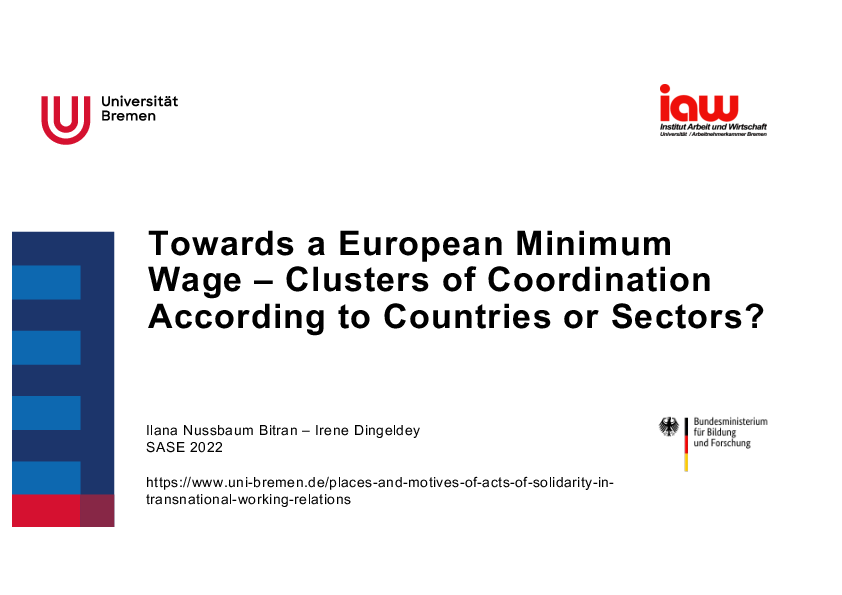SOHA @ SASE in Amsterdam 2022
SASE Annual conference 2022 “Fractious Connections: Anarchy, Activism, Coordination, and Control”
During July 9th - 11th 2022, the 34th Annual Meeting of the Society for the Advancement of Socio-Economics (SASE) took place in Amsterdam. The team of SOHA participated in different sessions and also as co-organiser of a Mini Conference. In this blogpost we tell you a little bit of how it was and the experience we had in the beautiful city of Amsterdam.
We started our trip early on Friday 8th and arrived in Amsterdam in the afternoon in order to do the registration at the University of Amsterdam. The next day the congress started with a great selection of sessions on issues such as productivity and work, industrial relations, cooperation and decision making, among others. After lunch, the president of SASE officially opened the conference with a speech on “Fractious Connections in a Disruptive Age”. The afternoon followed with more interesting sessions where the topics of collective action, wages and working relations were discussed.
Our Mini Conference started on Sunday and was called “Labour and Collective Action in Transformation”. Within the Mini Conference we organised 5 sessions. The first two were dedicated to paradoxes of labour mobilization in digital capitalism and were focused on collective action in digital capitalism, unionization and the organization of platform work. The third session was called “The Paradox of Transnational Solidarity in Transforming Working Relations” and was dedicated to the topic of our project. Franziska Laudenbach from zap was the organiser, while Irene Dingeldey from iaw did the moderation. We had three paper presentations. The first one was “Towards a European Minimum Wage – Clusters of coordination according to sector?” and was presented by Ilana Nussbaum Bitran. In this paper, the authors studied the positions and demands of the national and transnational social partners on the European minimum wage directive, highlighting sector-specific contexts of action. The question to be answered was “How is the cooperation between national and transnational organisations of the social partners clustered in order to find joint positions concerning a European minimum wage?” Focusing on different cleavages such as sector specific interests, different industrial relation systems and labour/capital, we explored how social partners communicated and pushed for their interests, as well as the internal passion-finding strategies. The second paper was titled “Transnational crisis corporatism: The European sectoral social dialogue as an arena of transnational collective action during the Covid-19 pandemic” and was presented by Franziska Laudenbach. Here, the authors analyze the transnational level of crisis corporatism and tackle the question how and why transnational crisis corporatism at the level of the European sectoral social dialogue has taken place? By focusing on the European sectoral social dialogue, this paper gives insights into collective action at the European, transnational level and proves acts of solidarity beyond national borders during the Covid-19 pandemic. The authors understand transnational crisis corporatism as social partnership on the European level where organized and centralized umbrella interest groups (the European federations of trade unions and employer associations) get together with an EU institution and organize a (continuous) coordination of conflicting interests. With the examples of two European sectoral social dialogues – commerce and social services – they show how transnational collective actors interacted, how they built a transnational identity and what their crisis reaction included. Overall, they show that transnational crisis corporatism needs (internal & external) stabilizing structures and a strong common understanding. Moreover, mechanisms such as bridging and bonding through coalition building, rhetorical appeals and content related interaction are highly relevant at the transnational level in order to create a functioning common working base. The last presentation was done by two colleagues: Casper Gelderblom from the European University Institute and Riccardo Emilio Chesta from the Scuola Normale Superiore. In their work “Conceptualizing and Organizing Transnational Labor Solidarity: The global Amazon struggle as a case of labor transnationalism”, the authors studied three transnational networks of labor activism (NOLAs) to chart the relationship between the composition and governance of a NOLA (i), the iteration of transnational solidarity it construes (ii), and the transnational strategy its local constituents adopt (iii). Their work centered on three defining transnational protest events NOLAs organised: AECJ’s 2019 global climate walk-out, UNI Global’s 2018 transnational strike against Amazon, and AWI’s protest against Amazon CEO Jeff Bezos’ 2018 receipt of the Axel Springer Award. Through the case of Amazon, then, this paper sought to advance in the theorization of labor transnationalism by enhancing the conceptualization of transnational labor solidarity and charting different organizing models in transnational NOLAs. The three papers were discussed by Valeria Pulignano from the KU Leuven. After her inputs we had some time for questions and an open discussion with the panelist and the public.
The two last sessions were dedicated to the presentation of a book called "Technopolitik von unten" written by Simon Schaupp and to the topic of conditions and consequences of decarbonization.
The congress ended on Monday 11th after half a day of more interesting sessions!
You can find our presentations here and below you can see some pictures of the congress and the SOHA team in Amsterdam. We will be soon presenting our work again during the German Industrial Relations Association (GIRA) Annual Meeting in Bochum, Germany, where this year’s topic is transnational industrial relations. If you would like to know more about it, do not hesitate to contact us and check our blog again in the coming months.







